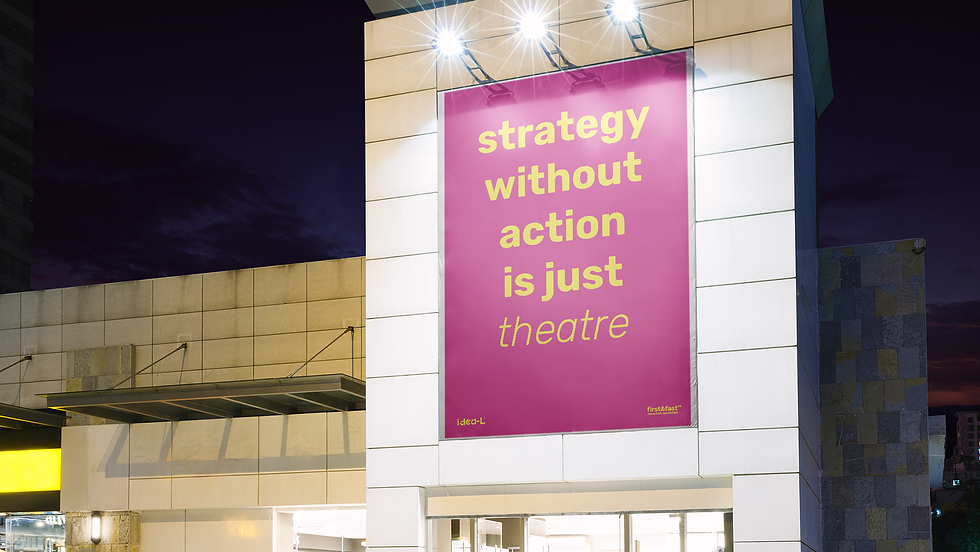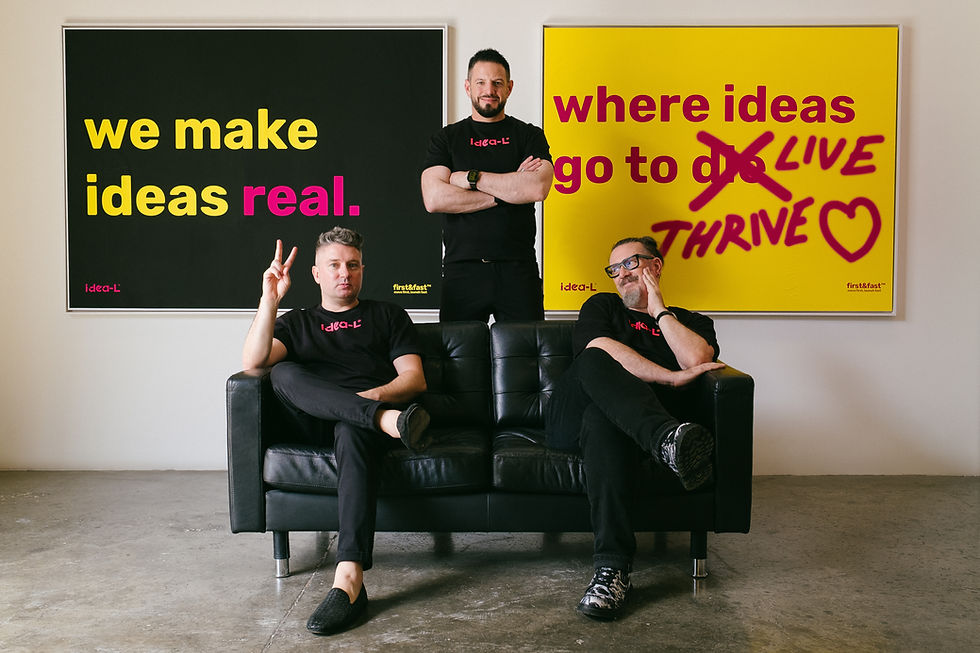Strategy Theatre: Why Founders Spend TooLong Planning and Not Enough Building
- ramalababidi
- Aug 1, 2025
- 2 min read

Strategy is essential. But when it becomes performance slides, vision statements, long meetings it stops being useful. It becomes theatre.
The startup world is filled with “strategic” activity that looks productive but delays execution: detailed roadmaps built before real user feedback, pitch decks obsessively polished before a prototype exists, market analyses that validate assumptions instead of testing them.
This isn’t strategy. It’s avoidance.
The Illusion of Readiness
Many founders mistake planning for progress. But spending six weeks on a deck doesn’t move the idea forward. Validating an assumption with ten users does.
The Harvard Business Review reported that early-stage founders who obsess over strategic planning without parallel execution are more likely to stall within the first 18 months. Why? Because strategy without motion doesn’t yield results.
You can’t iterate on a Google Doc. You iterate on a product in a market.
Overthinking as a Symptom of Fear
Behind the obsession with planning lies fear: fear of failing, of being wrong, of not appearing “ready.” So founders build slide decks, conduct secondary research, and rehearse pitches instead of engaging with reality.
This creates a false sense of control. But the only control that matters is adaptability and that comes from testing, not theorising.
Why the Best Strategy Is Early Execution
Real strategy is reactive. It’s a response to real-world inputs. You don’t know your customer until you’ve served them.
You don’t know your market until you’ve competed in it.
The best founders treat strategy as scaffolding, not scripture. They build the first version fast, learn what works, and adjust. Their strategy evolves in motion not in isolation.
Reframing What It Means to Be “Ready”
Being ready doesn’t mean having all the answers. It means being willing to test them.
We need to move away from strategy theatre toward strategic experimentation. From pretending we’re in control to actually learning what works.
Because in the end, you don’t get rewarded for how well you planned you get rewarded for what you shipped.






Comments